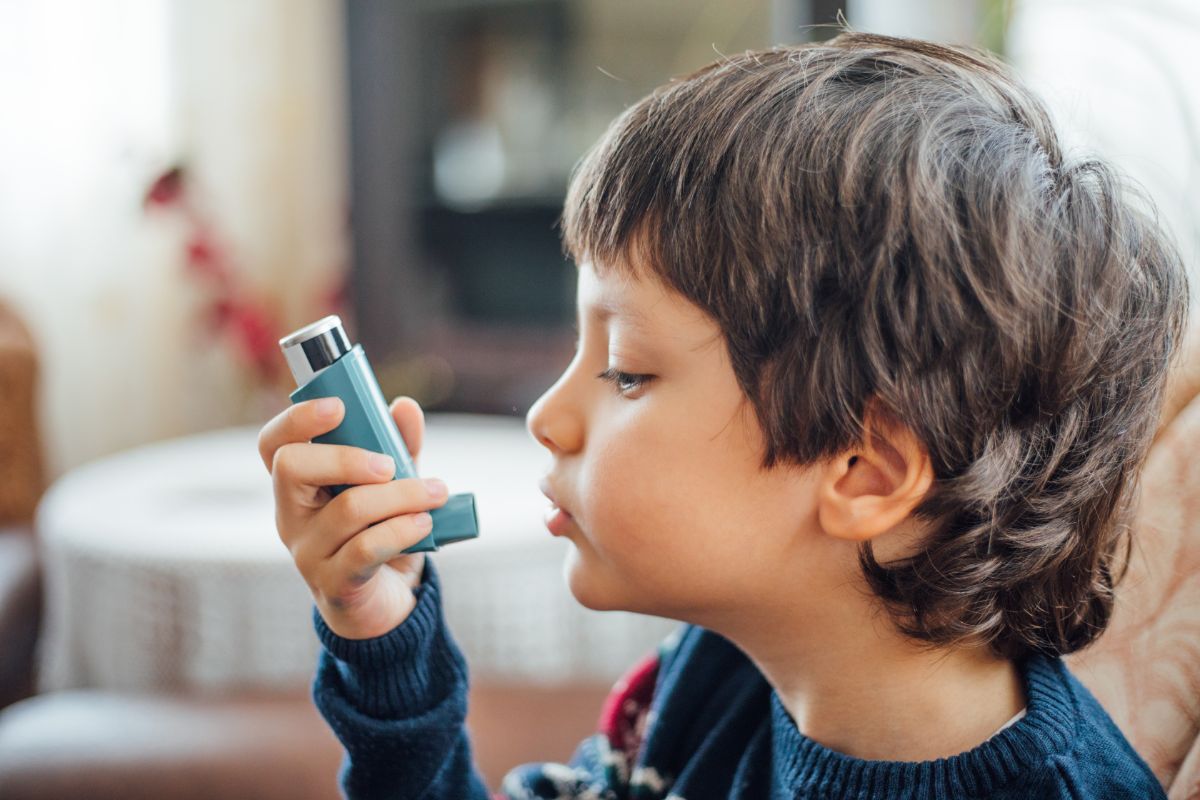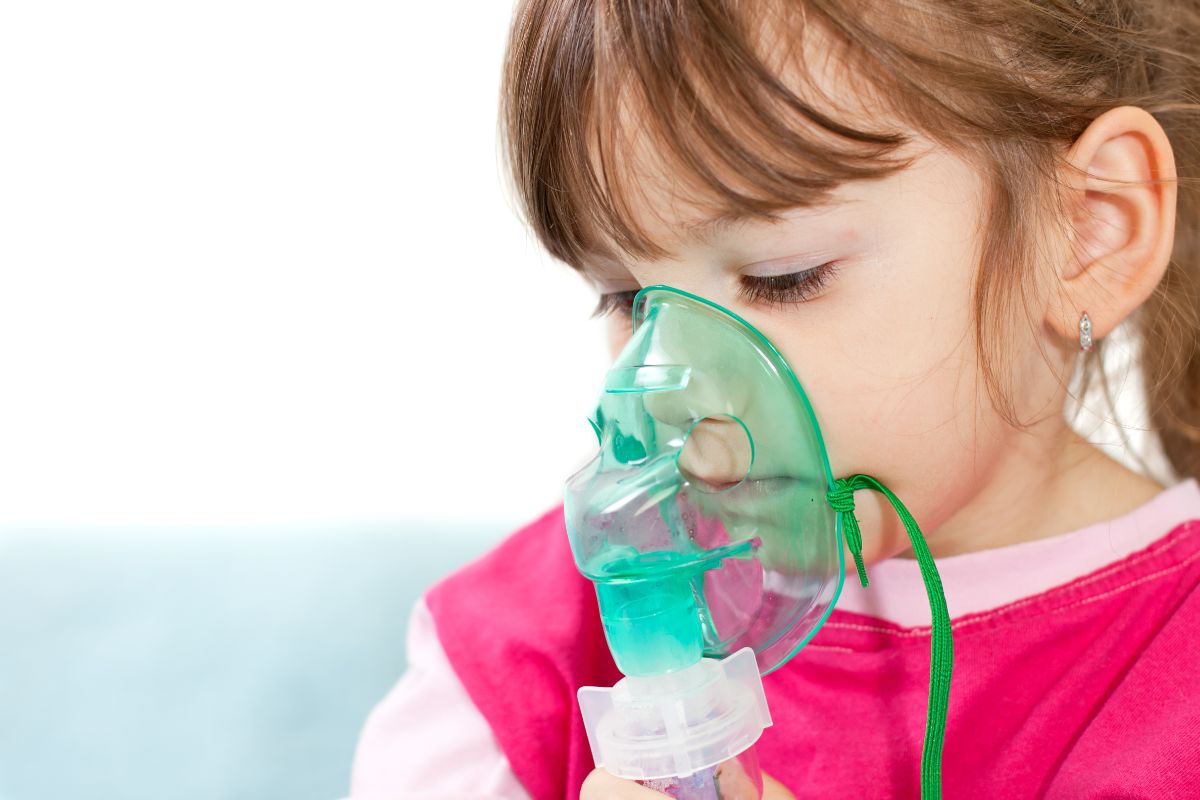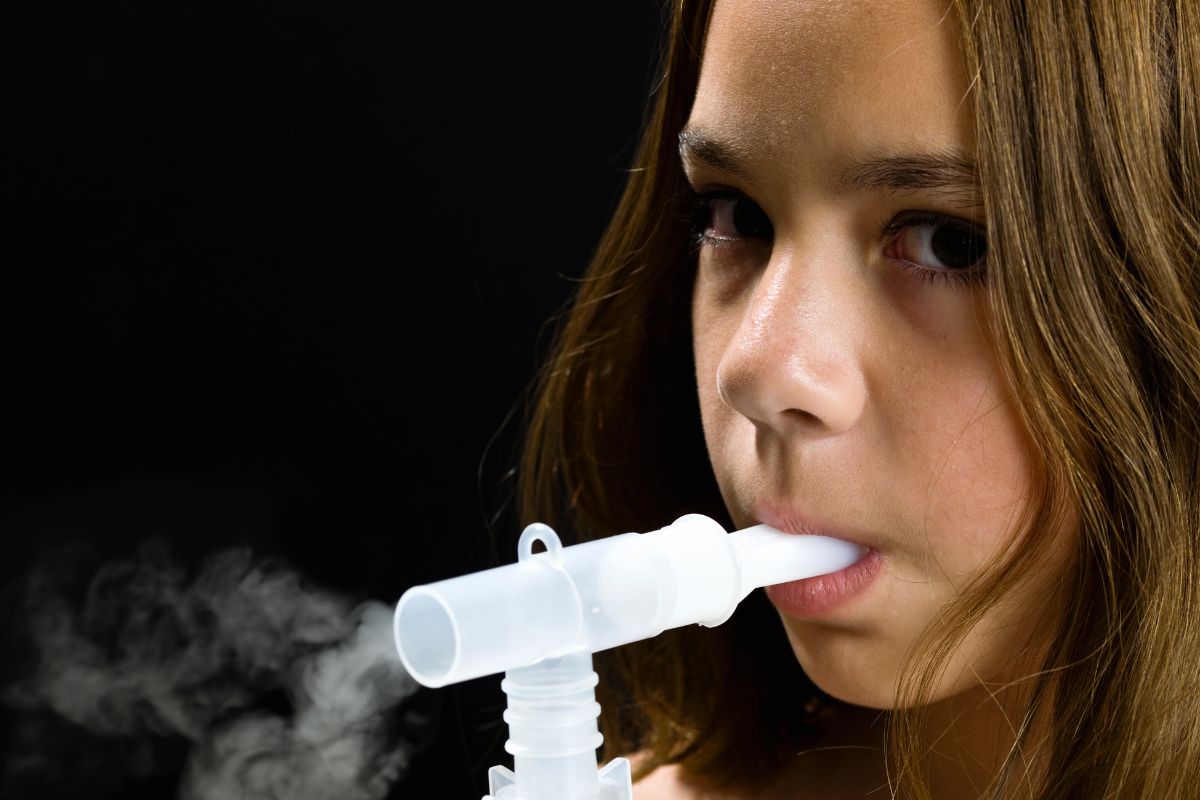Asthma is a common condition that affects more than 300 million people worldwide. Approximately 11.6% of those 300 million people are children between the ages of 6 and 7.
Making it difficult for individuals to breathe, asthma is a condition that can affect anyone at any time. However, it often starts in childhood.

Therefore it is important for parents to do everything they can if they believe their child might have asthma.
In fact, even if your child doesn’t currently have asthma it’s a good idea to brush up on your knowledge so that you can identify any signs.
The fact you’ve come across this post would suggest that you’re concerned your child could have asthma or simply want to learn more about the condition. If that’s the case, you’ve come to the best place.
In this post, we’ll tell you everything you need to know about asthma in children. We’ll look at what it is, the most common symptoms, and what to do.
Without further ado, let’s get started!
What Is Asthma?
Before we go any further, let us tell you a little bit more about what asthma actually is.
Asthma is a common lung condition that causes breathing difficulties in those that have it. While most of these breathing difficulties tend to be pretty mild, more serious asthma attacks can lead to great difficulty breathing.
The condition affects people of all ages but typically starts in childhood. However, it isn’t uncommon for adults to also develop asthma for the first time too.
Unfortunately, there is currently no cure for asthma. Instead, the condition is controlled and treated using a range of medications.
This medication usually takes the form of an inhaler. It is through the treatment of asthma that symptoms can be kept under control and prevented from impacting the individual’s life too much.
If left untreated, an individual can be left in serious discomfort and distress. Sadly, individuals with extreme asthma have been known to pass away too.
However, almost all of these deaths are avoidable with the right treatment.
What Causes Asthma?
So, what causes asthma?
Simply put, asthma is caused by allergies.
Studies would suggest that exposure to viral infections, irritants, and a range of allergens as a child or infant could be the main cause and the reason behind some children developing asthma.
It is believed that this happens more in children because their immune system isn’t fully mature. In adults, the development of asthma is most commonly linked to dust and chemicals found in the workplace.
Allergens that might cause asthma include dust mites, pollen, feathers, fur, fumes, or pollutants.
It isn’t that uncommon for simple things like stress or laughter to cause asthma too.
An Overview Of Asthma In Children

Now you know a bit more about asthma and its causes, let’s start looking at asthma in children.
Asthma in children isn’t a different disease from asthma that affects adults but children do face their own challenges.
Childhood asthma causes the airways and lungs to become inflamed easily when exposed to one of the triggers we mentioned earlier.
Other potential triggers could be a respiratory infection or catching a cold. Either way, the child could start to struggle.
Childhood asthma causes uncomfortable and quite distressing symptoms.
These symptoms will interfere with a child’s life. It will make it much harder for a child to sleep, go to school, play sports, or play with friends.
In fact, childhood asthma is a major cause of hospitalizations, emergency department visits, and time children take off from school.
Like asthma in adults, childhood asthma can’t be cured. Symptoms are fairly likely to carry on into adulthood too.
However, if you spot things early and get the best treatment for your child, they should be fine.
Why Is It Important To Spot Asthma?
While it may seem fairly obvious why it is important to spot asthma in your child, there are a couple of other things that you may not know about. First, let’s start with the obvious.
If you fail to notice your child struggling with asthma symptoms, they could seriously struggle to go about their day-to-day life.
Simple things like walking around school, running upstairs, and sleeping will be very difficult. Not to mention how much discomfort and potential pain your child could experience.
Spotting signs of asthma can lead to a doctor treating your child and relieving symptoms. Not only will this give your child a happier life, but it will also help avoid any hospitalizations or emergencies.
Another thing that will be prevented is damaged lungs. If left untreated, asthma will damage your child’s growing lungs. This could lead to complications later in life.
With all of this in mind, let us show you the common signs that may indicate your child has asthma.
Signs Your Child Might Have Asthma

There are a surprising number of signs and symptoms that could suggest a child has asthma. Below, we’ve listed the most common signs and symptoms for you so you know what to look for.
If you spot any of these signs with your child, you need to do something about it!
The Most Common Childhood Asthma Signs Include
- Frequent coughing that occurs when your child is asleep or worsens when they have a viral infection.
- Shortness of breath.
- A wheezing or whistling sound when your child breathes out.
- Chest tightness or congestion.
Other Signs And Symptoms Of Childhood Asthma Include
- Difficulty sleeping because of coughing, wheezing, or shortness of breath.
- Delayed recovery from respiratory infections.
- Fatigue.
- Bouts of wheezing and coughing that get worse after the flu or a cold.
- Difficulty breathing when taking part in sports or play.
Asthma symptoms and signs tend to vary a lot. One child might display a completely different set of symptoms than another. Some children display better or worse symptoms too.
This can make it hard to spot asthma. It could be that your child only has one symptom that indicates asthma. Symptoms can be so mild that you simply assume your child has an infection.
What To Do?
If you suspect that your child has asthma, there are a number of things you have to think about and do. What you choose to do first depends solely on how your child feels.
If your child is occasionally showing mild symptoms and isn’t struggling too much at that moment in time, you should take them to see a doctor as soon as possible.
Your child’s doctor can then review your child and make a decision.
On the other hand and in more serious cases, if your child is displaying severe signs of asthma and is suffering from extreme breathing difficulties, you should take them straight to an emergency department.
We’ll look at both in more detail now!
Taking Your Child To A Doctor

If you suspect your child has asthma, early identification and treatment can help prevent the possibility of asthma attacks.
You should book an appointment with a doctor if you spot:
- Shortness of breath.
- Constant coughing.
- Chest tightness.
- Symptoms of suspected bronchitis.
You should also look out for signs that your child gives you. Your child might tell you that their chest feels funny, or say that he/she always has a cough.
If your child sees a doctor, if they do have asthma, an effective plan can be put in place.
Seeking Emergency Treatment
In the severest of cases, you might have to seek emergency treatment for your child. You might see your child struggling to catch a breath, an increased heartbeat, chest pain, or sweating.
You should seek emergency treatment if you encounter any of these symptoms or the ones below:
- Your child stopping mid-sentence to catch a breath.
- The use of abdominal muscles when breathing.
- Widened nostrils.
- Your child’s abdomen muscles are pulled under the ribs due to difficulty breathing.
Even if your child hasn’t been diagnosed with asthma yet, seek professional medical attention straight away if your child is experiencing any of the above symptoms.
Preventing Asthma Attacks
Once your child has been diagnosed with asthma, they will most likely be given some form of medication to ease symptoms.
Whilst this medication, which will probably be an inhaler, will protect your child from asthma attacks, there are other things you can do to decrease the risk.
To decrease the chance of an asthma attack, you should try your best to reduce the number of triggers your child will encounter. We’ve listed the triggers that can be easily avoided below:
- Limit exposure to irritants and allergens by keeping your child away from things like pollen, dust, and fumes.
- Never smoke around your child.
- Encourage regular exercise so your child can build stronger lungs.
- Check-in with the doctor regularly to see how well controlled the asthma is.
- Help your child maintain a healthy lifestyle.
- Try to keep heartburn under control.
In Summary
Asthma is very common, especially among children. It is an unpleasant condition that can cause great discomfort and stress to children and adults, as it makes it much harder to breathe.
As a result, it is important for parents to understand what asthma is, what causes it, what the common signs and symptoms are, and what to do if they think their child could have asthma.
In this post, we’ve shown you the answers to all of these questions and more. With all this information at your disposal, you should know what to do with your child if you think they have asthma.
If symptoms are only mild, take them to a doctor as soon as you can.
If symptoms are severe, get them to an emergency department straight away. It’s always better to be safe than sorry.
- Understanding Male Reproductive Health: A Complete Guide - February 2, 2025
- Simple Healthy Skin Habits for Radiant Skin - December 6, 2024
- Unlocking the Connection Between Nutrition and Mental Health - December 3, 2024








